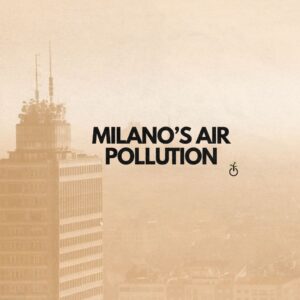During the past few years ESG issues have become increasingly relevant both at a corporate and at a political level. The European Union had undertaken to promote the importance of them by extending the obligation of non-financial reporting through the EU Directive 2014/95 which established new reporting standards regarding the disclosure of non-financial information and information on diversity by certain companies and certain large groups. Therefore, the non-financial statement had to include information “of the undertaking’s development, performance, position and impact of its activity, relating to, as a minimum, environmental, social and employee matters, respect for human rights, anti-corruption and bribery matters.”.
The implementation of the EU Directive on non-financial information is the result of the transition from voluntary to mandatory disclosures for certain types of businesses: it will bring greater attention and regulation of ESG criteria in the corporate world. In addition, in April 2021 the European Commission proposed a series of measures to accelerate and improve investments towards sustainable activities. Above all a significant one is the proposal for a Corporate Sustainability Reporting Directive (CSRD) that aims to introduce more detailed reporting requirements, and a requirement to report according to mandatory EU sustainability reporting standards.
Currently the institution that gives more guidelines on how to make a sustainability report is the Global Reporting Initiative, a non-profit organization that promotes economic sustainability.
This organization gives standards and support the companies in the implementation through the GRI’s sustainability reporting services.
The GRI Standards are 3 series of standard that support the reporting process:
- GRI Universal Standards (which apply to all organizations):
- GRI 1: Foundation 2021: contains the aim of the GRI standards and explains how to use standards. It also lists the principles (for example accuracy, balance, and verifiability) fundamental to good-quality reporting.
- GRI 2: General Disclosures 2021: contains disclosures relating to details about an organization’s structure and reporting practices
- GRI 3: Material Topics 2021: explains the steps by which an organization can determine its material topics, and describes how the Sector Standards are used in this process
- GRI Sector Standards: standards for specific sector, in order to increase the completeness, quality and consistency of reporting. In particularly, standards will be developed for 40 sectors, starting with those with the highest impact (oil and gas, agriculture, aquaculture, and fishing). Each Sector Standards contains an initial part, that gives an overview of the sector’s peculiarity, activities and impacts; the main section specifies the likely material topics for the sector.
- GRI Topic Standards: each dedicated to a topic such as waste, occupational health and safety, and tax.
- Each Standard contains an overview of the topic and information specifications explaining how organizations can manage their impact. Each organization chooses those Topic Standards that are consistent with the material topics it has determined before and uses them for reporting.
Moreover, the sustainability report allows to be compared companies and one of the most famous sustainability ratings is the Dow Jones sustainability Index. This Index contains the global sustainability leaders and represents the top 10% of the largest 2,500 companies based on long-term economic, environmental, and social criteria.
The EU has made it one of its aims to be the first climate-neutral continent by 2050 and intend on reaching this goal through the European Green Deal (Caputo et al., 2022). Furthermore, to globally compare how countries perform related to each other, the ESG Index (ESGI) is calculated, with weights of 30% on the environment, 50% on human rights (social), and 20% on health and safety (governance). According to the 2021 data and the figure below, Finland is the most efficient in terms of ESG criteria globally (Global Risk Profile, 2021). Russia ranks low in ESG criteria, due to a low score in the human rights section of the ranking.

Figure 1 Geographical representation of ESGI rankings per country
Finland has been very successful at reducing their pollution levels with the implementation of efficient environmental policies aimed at protecting the environment, a significant portion of their energy is renewable, and lastly Finland was very efficient in containing COVID within the country when the pandemic occurred (Robeco, 2022). Moreover, in terms of ESG investing, Finland really strives at including sustainability and development into consideration when individuals, firms and companies make investment choices (Castren & Snellman, 2022). Neighbouring country Russia however has not been as successful in terms of ESG criteria, particularly in the social aspect. Unlike Finland, Russia has very limited sustainability and development goals, it is not something that investors or companies consider when making investment decisions, it has been encouraged by some Unions, however even these unions have conservative views and do not emphasise the importance of sustainability and development goals (CASVI, 2021). To end off an interesting note, even though the war between Russia and Ukraine negatively impacts the ESGI for Russia, other countries which have political conflict such as Turkey and Egypt are more impacted than Russia (Gordon, 2022).
By Irene Miraglia, Maddalena Peola, Sergio Morgante, Rado Damianov
Sources:
https://www.morningstar.co.uk/uk/news/211424/which-countries-lead-on-esg.aspx https://globalriskprofile.com/2021-esg/ https://www.ashurst.com/en/news-and-insights/legal-updates/the-esg-opportunity-in-europe/ https://www.lexology.com/library/detail.aspx?g=22e1d5fa-0621-4ba4-b59b-b2891dc52059 https://www.robeco.com/en-me/insights/2022/01/finland-tops-country-sustainability-ranking- for-the-first-time
https://www.casvi.org/en/h-nd-1133.html https://www.etfstream.com/news/russia-ranks-higher-on-esg-than-15-other-sovereigns- according-to-new-ratings/
https://www.globalreporting.org https://www.globalreporting.org/media/wtaf14tw/a-short-introduction-to-the-gri- standards.pdf https://www.globalreporting.org/how-to-use-the-gri-standards/gri-standards-english- language/
https://www.spglobal.com/spdji/en/indices/esg/dow-jones-sustainability-world- index/#overview



